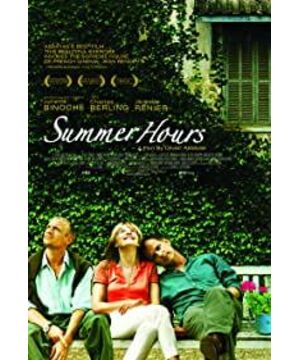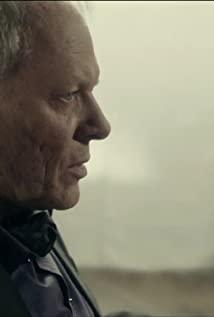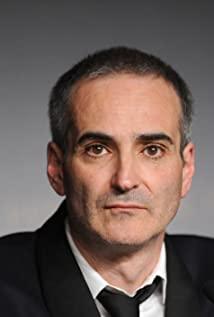There is a touch of helplessness everywhere. Hélène spends the rest of his life organizing his uncle's things, to cherish his memory, and has been secretly in love with him. After her death, the memories, stories, and loves that belonged to the previous generation also vanished with the dispersal of objects and memories. Everything that is unforgettable to Hélène is no longer important to the next generation. She understands it herself, so she chooses to sell her house and works; although her children love her, they can no longer take care of her all the time. I don't know how to use it, and I don't want to call them to help. The eldest son, Frédéric, wants to keep this memory, but for the other siblings, money is more important. He also understood, so he had to give up. For his children, the old house is just a place to play as a child. Partying with friends is more important and fun.
There is a small white house in the rich green grass, on the lawn where Hélène lived with the people she loved, she and her children and grandchildren gathered together, the children ran and played, grew up The girls and boys danced and sang to the lively music. The scenes overlapped, as if there was no change, and they changed with the times.
I really like the ending. In the end, Frédéric's daughter and her boyfriend ran into the field next to the house, remembering the time when Uncle Hélène and Hélène painted. I don't know if she understands the relationship between them, or if she just misses her grandma too much, the helplessness and sadness that have been pervading in the movie stretched out in her sudden cry, shrouded in the sun down, warm and reassuring.
View more about Summer Hours reviews











